Quick Solutions for WhatsApp Messaging Template Issues
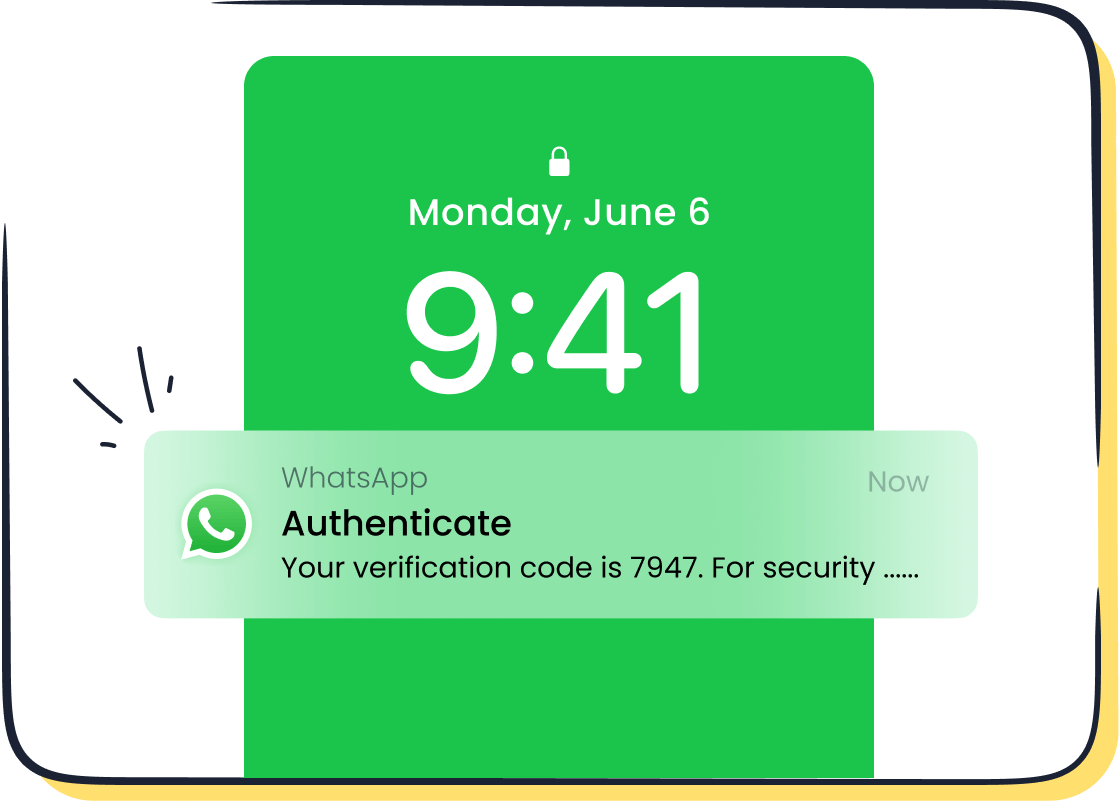
Using WhatsApp template messages can sometimes feel frustrating. Delivery issues, delays, and rejections often disrupt your communication flow. For instance, delivery failures, known as hard bounces, occur when a WhatsApp message cannot reach its recipient permanently. These problems can slow down your operations and affect customer satisfaction. Addressing such issues promptly ensures your WhatsApp messaging template works seamlessly, helping you maintain trust and efficiency. With tools like Sobot's WhatsApp Business API, you can simplify messaging workflows and minimize errors in your templates.
Common Issues with WhatsApp Messaging Templates
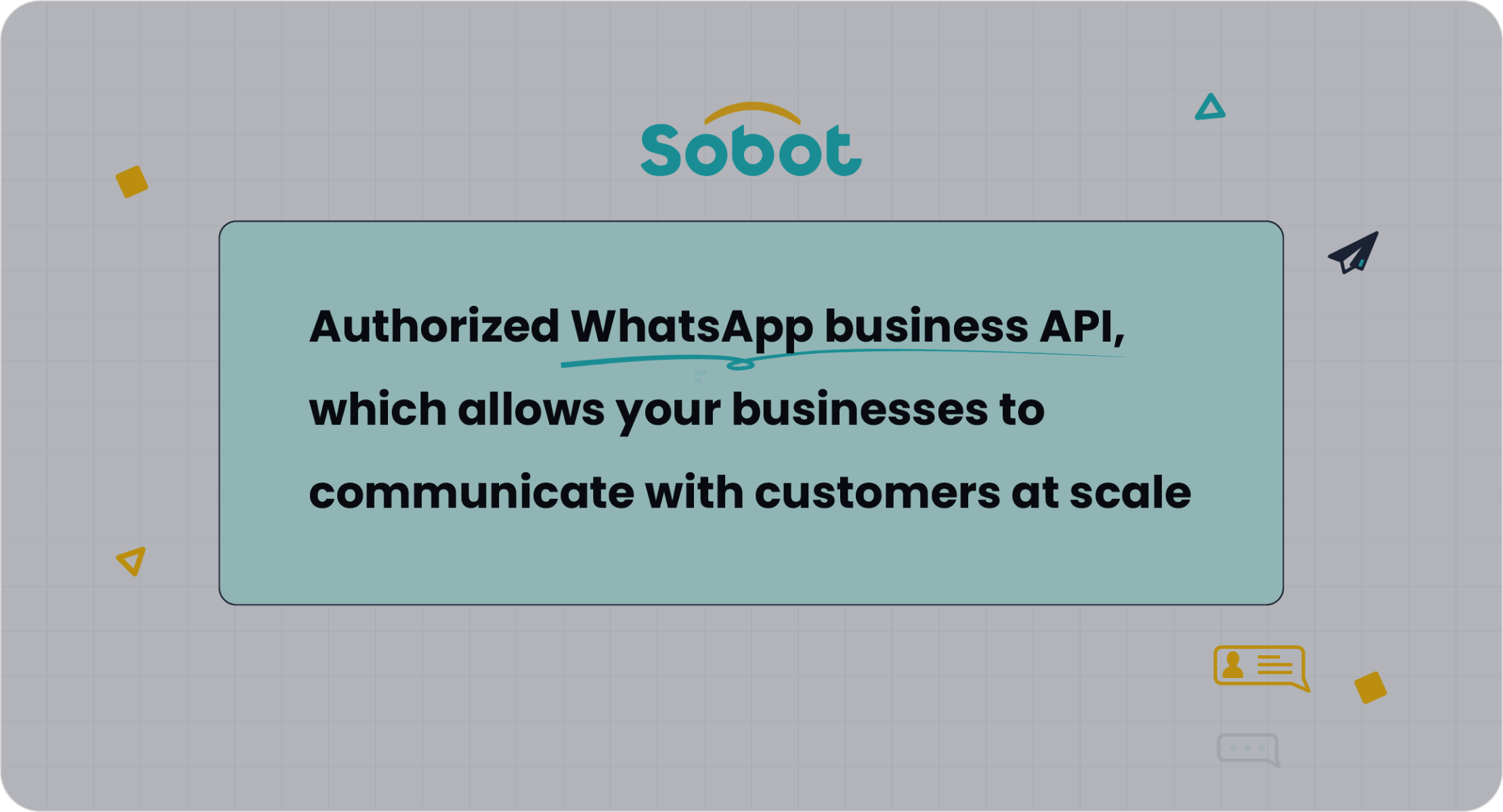
Why Delivery Failures Occur
Delivery failures can disrupt your communication and lead to a poor customer experience. These failures often occur due to several reasons:
- Invalid parameters in your templates.
- Customers blocking your business number.
- Payment eligibility issues with your WhatsApp Business account.
- Delivery limits imposed by Meta.
- Customers being offline for over 30 days.
- Operating in restricted or sanctioned countries.
For example, if a customer blocks your number, any message you send will result in a failed message. Similarly, using unverified numbers increases the likelihood of delivery issues. To ensure successful message delivery, always verify your business account and follow WhatsApp’s guidelines.
Causes of Delays in Message Delivery
Delays in sending WhatsApp message templates can frustrate both you and your customers. Many businesses report delays ranging from 1 to 30 minutes when using templates with variables. Static templates without variables, however, do not face this issue.
This delay is a known bug acknowledged by Meta, but it remains unresolved.
To minimize delays, consider simplifying your templates and testing them with tools like Sobot’s WhatsApp API. This API helps you identify potential issues before sending messages, ensuring smoother communication.
Reasons for Template Rejections
WhatsApp has strict policies for approving templates. Rejections often happen due to:
- Missing or mismatched variable parameters, such as incorrect curly braces (
{{1}}). - Using special characters like
#,$, or%in variable fields. - Non-sequential variables, e.g., skipping
{{3}}in a sequence. - Violations of WhatsApp’s Commerce or Business Policies.
- Duplicate templates already submitted.
- Abusive or threatening language in the content.
For instance, if your template includes sensitive identifiers or violates WhatsApp’s Commerce Policy, it will likely be rejected. To avoid common error reasons, always review your templates for compliance and test them using Sobot’s WhatsApp API. This tool simplifies the approval process by ensuring your templates meet WhatsApp’s standards.
Common Formatting Errors
Formatting errors in WhatsApp messaging templates can lead to rejections or delivery failures. These errors often stem from overlooked details in the template structure. Below is a table summarizing the most common formatting issues and how to avoid them:
| Error Type | Description |
|---|---|
| Parameter Formatting | Variable parameters are missing or have mismatched curly braces. The correct format is {{1}}. |
| Special Characters in Variables | Variable parameters should not include special characters like #, $, or %. |
| Sequential Variables | Ensure all variable parameters are defined in sequence (e.g., {{1}}, {{2}}, {{3}}). |
| Character Limits | The body component has different character limits based on the template format and tag. |
| Ending with a Parameter | The message template cannot end with a variable parameter. |
| Grammatical Errors | Templates should not have any grammatical or spelling mistakes. |
For example, if your template ends with a variable like {{1}}, it will be rejected. Similarly, using special characters in variable fields can cause approval delays. To avoid these common error reasons, always double-check your templates before submission. Tools like Sobot's WhatsApp API can help you validate your templates and ensure they meet WhatsApp's formatting standards.
Compliance Challenges with WhatsApp Policies
Navigating WhatsApp's policies can be challenging, especially when regulations vary across regions. Here are some common compliance hurdles businesses face:
- Keeping up with changing regulations across different jurisdictions.
- Ensuring all marketing communications align with WhatsApp's policies.
- Implementing robust review processes for messaging to mitigate compliance risks.
For instance, WhatsApp prohibits certain types of promotional content, such as those that violate its Commerce Policy. If your message includes restricted items or services, it may result in template rejection. To stay compliant, you should regularly review WhatsApp's guidelines and adapt your messaging strategies accordingly. Sobot's WhatsApp API simplifies this process by offering built-in compliance checks, ensuring your templates adhere to WhatsApp's rules. This proactive approach minimizes risks and keeps your communication seamless.
Step-by-Step Troubleshooting Guide for WhatsApp Messaging Templates
How to Resolve Delivery Failures
Delivery failures can disrupt your communication and lead to a poor customer experience. To resolve these issues, you need to identify the root cause and take corrective actions. Below is a table summarizing common error codes and their solutions:
| Error Code | Description | Suggested Action |
|---|---|---|
| 132012 | Template parameter format mismatch | Ensure template parameters match the approved template format. |
| 132015 | Template Paused | Edit the template, improve quality, and try sending it again. |
| 132016 | Template Disabled | Create a new template with improved content. |
| 131026 | Message Undeliverable | Ensure the recipient has a valid WhatsApp number and has accepted T&Cs. |
| 132007 | Template Format Policy Violation | Review the rejection reason and edit the template content. |
For example, if you encounter the "message undeliverable" error (131026), verify that the recipient's WhatsApp number is active and they have agreed to WhatsApp's terms and conditions. Additionally, monitor your delivery rates and engagement levels to identify patterns that may indicate delivery issues. Tools like Sobot's WhatsApp API can help you track these metrics and optimize your messaging strategy for successful message delivery.
Fixing Delays in Message Delivery
Delays in sending message templates can frustrate your customers and disrupt your operations. To address this issue, follow these troubleshooting tips:
- Simplify Your Templates: Reduce the use of variables in your templates. Static templates without variables often experience fewer delays.
- Optimize Send Times: Schedule your messages during off-peak hours to avoid server congestion.
- Monitor Error Codes: Keep an eye on error codes like 131026 to identify and resolve issues promptly.
- Implement Frequency Capping: Limit the number of messages sent to a single recipient within a specific timeframe to avoid delays.
Tip: Use Sobot's WhatsApp API to test your templates before sending them out. This tool helps you identify potential delays and ensures smoother communication.
For instance, if you notice a delay in sending out template messages with variables, consider simplifying the template structure. By doing so, you can reduce processing time and improve delivery rates. Additionally, focusing on quality messaging and relevance can enhance user engagement and minimize delays.
Addressing Template Rejections
Template rejections can hinder your ability to communicate effectively with your audience. To address this issue, you need to understand why WhatsApp rejected your template and take corrective actions. Common reasons for rejections include:
- Policy Violations: Ensure your template complies with WhatsApp's Commerce and Business Policies.
- Formatting Errors: Check for issues like mismatched curly braces or non-sequential variables.
- Spammy Content: Avoid using language that may be perceived as abusive or promotional.
WhatsApp tracks user interactions with messages, such as blocking or reporting, to flag templates as spammy. High rates of these actions can lead to rejections. To prevent this, focus on creating templates that provide value to your audience. For example:
- Use clear and concise language.
- Avoid excessive promotional content.
- Test your templates using Sobot's WhatsApp API to ensure compliance with WhatsApp's guidelines.
Note: WhatsApp employs a pacing mechanism to provide feedback on templates. This mechanism helps you identify poorly received templates before wider distribution, allowing you to make necessary adjustments.
By following these steps, you can improve your template approval rates and maintain seamless communication with your customers.
Correcting Formatting Errors
Formatting errors in your templates can lead to rejections or delivery failures. To ensure your templates are error-free, follow these steps:
- Use only registered templates that comply with WhatsApp guidelines. This ensures your messages meet the platform's standards.
- Submit your templates for WhatsApp's approval before using them. Approved templates reduce the risk of delivery issues.
- Avoid generic names for templates. Instead, use descriptive names that reflect their purpose, such as "Order_Confirmation" or "Appointment_Reminder."
- Configure template details correctly. Specify the category (e.g., transactional or promotional) and language accurately.
- Structure your messages with clear headers, body text, and footers. This makes your communication more engaging and professional.
- Personalize your messages with properly formatted variables. For example, use
{{1}}for placeholders and ensure they are sequential. - Obtain opt-in permission from users and provide an opt-out option. This builds trust and ensures compliance with WhatsApp's policies.
For instance, if your template ends with a variable like {{1}}, it will likely be rejected. Similarly, using special characters such as # or % in variable fields can cause formatting errors. Tools like Sobot's WhatsApp API can help you validate your templates before submission. This API checks for issues like mismatched curly braces or non-sequential variables, ensuring your templates are ready for approval.
Tip: Always test your templates before sending them out. Testing helps identify formatting errors early, saving you time and effort.
Ensuring Compliance with WhatsApp Guidelines
Compliance with WhatsApp's guidelines is crucial for maintaining seamless communication. Here are some best practices to ensure your templates align with WhatsApp's policies:
- Use pre-approved message templates. These templates simplify the approval process and enhance the user experience by providing clear and relevant information.
- Submit your templates for WhatsApp's review. The platform typically takes a few days to approve templates, so plan accordingly.
- Avoid including restricted content. WhatsApp prohibits certain types of promotional material, such as those violating its Commerce Policy.
- Regularly review WhatsApp's guidelines. Policies may change over time, and staying updated helps you avoid compliance issues.
- Focus on creating value-driven templates. For example, use templates to send order confirmations, appointment reminders, or personalized offers.
For example, Michael Kors, a luxury fashion brand, successfully used Sobot's WhatsApp API to enhance its marketing efforts. By adhering to WhatsApp's guidelines and using verified templates, the brand achieved a 20% increase in conversion rates. This demonstrates the importance of compliance in driving successful communication strategies.
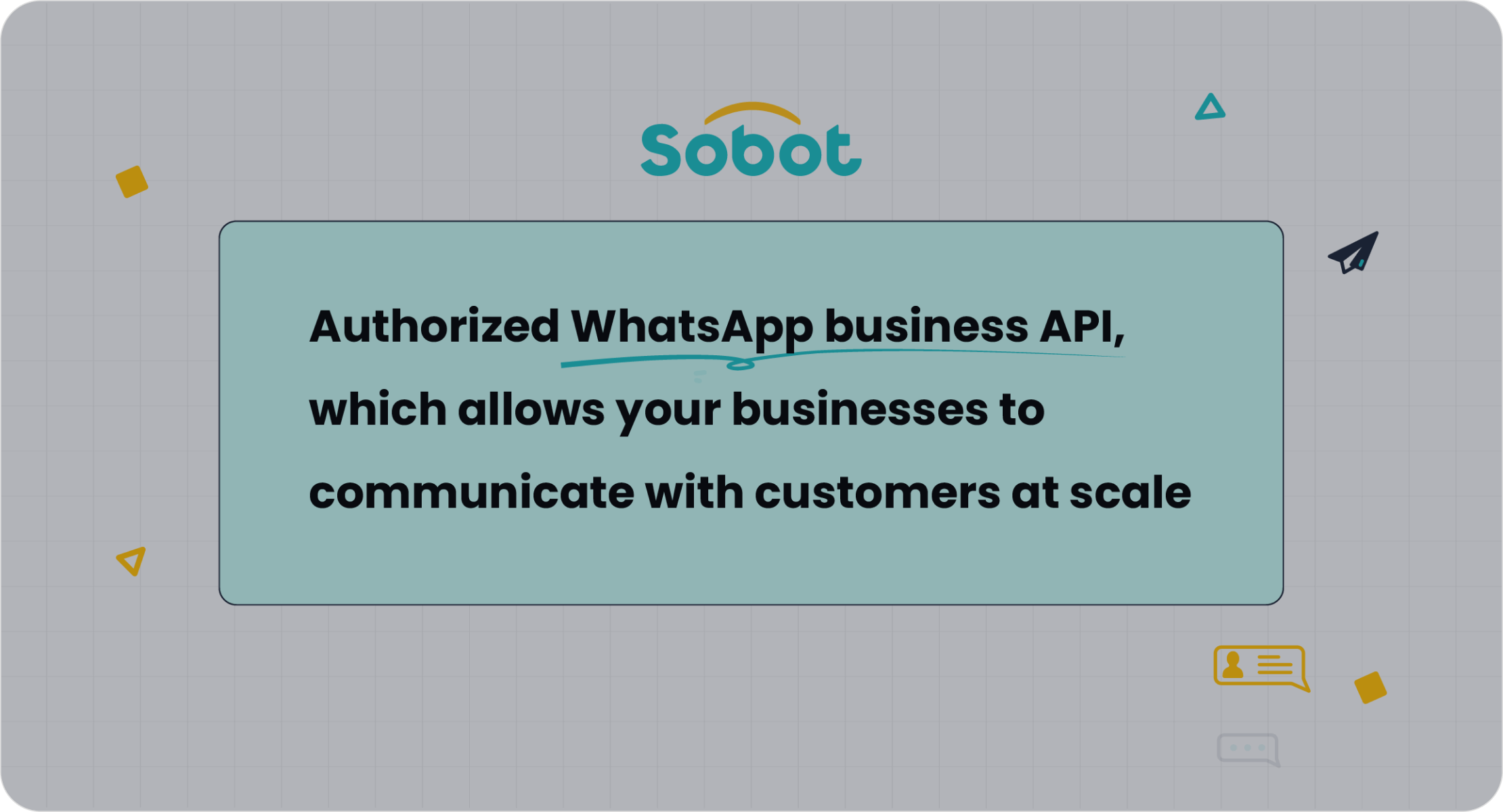
Note: Non-compliance can lead to template rejections or account restrictions. Using tools like Sobot's WhatsApp API ensures your templates meet WhatsApp's standards, reducing the risk of errors.
By following these guidelines, you can create effective templates that comply with WhatsApp's policies and deliver value to your customers.
Best Practices for Managing WhatsApp Messaging Templates
Crafting Clear and Concise Templates
Creating effective templates starts with clarity and brevity. Your messages should be easy to understand, even for recipients unfamiliar with your industry. Use short, descriptive names for your templates, avoiding special characters that could cause formatting issues. For example, naming a template "Order_Confirmation" instead of "OC#123" ensures better organization and readability.
To make your templates engaging, personalize them whenever possible. Include placeholders like {{1}} for names or order details, ensuring they are sequential and properly formatted. Adding a compelling call to action (CTA) guides your customers on the next steps. For instance, a template for appointment reminders could include, "Click the link below to confirm your appointment."
Tailoring your templates to your customers' journey enhances their effectiveness. For promotional messages, include images, videos, or catalogs to capture attention. Time-sensitive offers, such as discounts valid for 24 hours, encourage quick responses. Regularly test different versions of your templates to identify what resonates best with your audience. A/B testing helps refine your approach and improve engagement rates.
Tip: Keep your content relevant and valuable. Avoid overwhelming your customers with excessive messaging, as this can lead to disengagement.
Testing Templates with Sobot's WhatsApp API
Testing your templates ensures they work seamlessly before reaching your customers. Sobot's WhatsApp Business API simplifies this process by providing tools to validate your templates for compliance and formatting errors. For example, the API checks for mismatched curly braces, sequential variables, and adherence to WhatsApp's guidelines.
Using Sobot's API, you can simulate message delivery to identify potential delays or errors. This proactive approach saves time and minimizes disruptions in your communication flow. For instance, if a template includes variables like {{1}} and {{2}}, the API ensures they are correctly formatted and positioned.
Sobot's WhatsApp Business API also supports bulk messaging, allowing you to test templates at scale. This feature is particularly useful for promotional campaigns, where consistency and accuracy are crucial. By leveraging the API's analytics, you can monitor engagement metrics and refine your templates based on customer feedback.
Example: A quantitative study comparing WhatsApp and SMS for follow-up communication found similar response rates, with WhatsApp slightly outperforming SMS. This highlights the importance of using tools like Sobot's API to optimize your messaging strategy for better engagement.
Staying Updated on WhatsApp's Policies
WhatsApp's policies evolve regularly, making it essential to stay informed. Compliance with these guidelines ensures your templates are approved and delivered successfully. For instance, WhatsApp requires businesses to obtain user consent before sending messages. This impacts how you design and use your templates.
Reviewing WhatsApp's policies helps you avoid common pitfalls, such as including restricted content or violating opt-in regulations. For example, promotional messages must align with WhatsApp's Commerce Policy to avoid rejection. Regular updates to your messaging strategies based on policy changes and customer feedback keep your communication relevant and compliant.
Sobot's WhatsApp Business API simplifies compliance by offering built-in checks for template approval. This feature ensures your templates meet WhatsApp's standards, reducing the risk of errors. By staying updated, you can focus on creating value-driven templates that enhance customer satisfaction.
Note: Businesses that respect WhatsApp's guidelines and messaging frequency build trust with their audience. This proactive approach improves engagement and strengthens customer relationships.
Monitoring Template Performance with Sobot's Analytics
Monitoring the performance of your WhatsApp messaging templates is essential for optimizing customer communication. Sobot's Analytics provides you with powerful tools to track and improve your templates' effectiveness. By analyzing key metrics, you can identify what works and what needs adjustment.
Sobot's Analytics offers features that go beyond basic reporting. Here's how these features can help you:
| Feature | Description |
|---|---|
| Predictive Analytics | Anticipates customer needs and provides proactive solutions, enhancing customer experience. |
| Proactive Approach | Moves beyond reactive service to identify potential issues before they arise. |
| Data Analysis | Offers comprehensive analysis of customer data for insights and optimization. |
For example, predictive analytics can help you understand which templates resonate most with your audience. If a specific template consistently drives higher engagement, you can replicate its structure in future campaigns. Similarly, the proactive approach allows you to address potential issues, such as low open rates, before they impact your communication strategy.
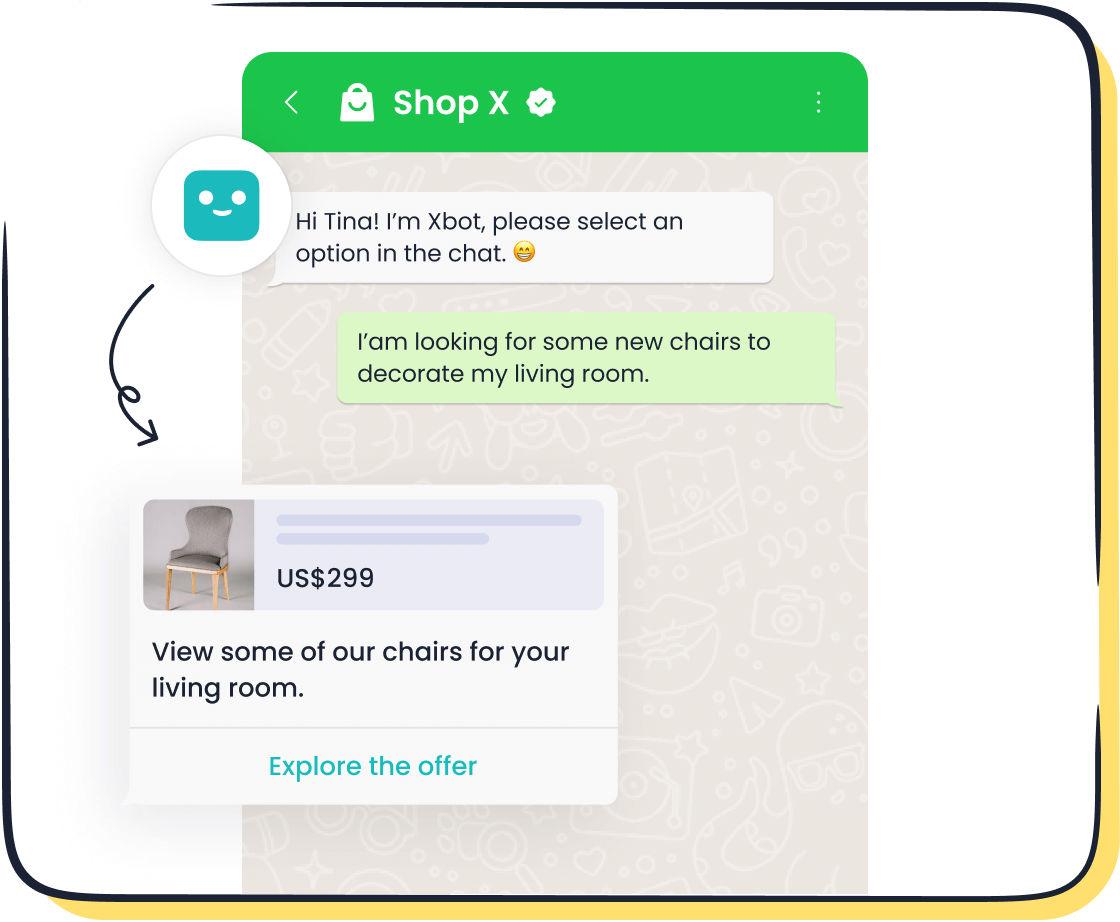
Using Sobot's WhatsApp API, you can also monitor delivery rates, response times, and customer interactions. These insights enable you to refine your templates for better performance. For instance, if a template with variables like {{1}} and {{2}} shows a lower engagement rate, you can test a simpler version to improve results. By leveraging Sobot's analytics tools, you ensure your WhatsApp messaging templates remain effective and aligned with your business goals.
Tip: Regularly review your analytics data to stay ahead of trends and customer preferences. This proactive approach keeps your communication strategy relevant and impactful.
Leveraging Automation for Template Management
Managing WhatsApp messaging templates manually can be time-consuming, especially as your business grows. Automation simplifies this process, saving you time and reducing errors. Sobot's WhatsApp API offers robust automation features that streamline template management and enhance efficiency.
A real-world example highlights the benefits of automation. The Argonauts, a team of 10-12 people based in the Netherlands and Berlin, faced challenges with manual message sending. Their growing client base required personalized communication, which became unmanageable. By implementing an automated WhatsApp messaging system, they achieved the following:
- Saved up to 10 hours weekly by automating message sending for about 1,000 potential clients.
- Enhanced personalization through automated templates.
- Reduced errors caused by manual entry.
- Improved time management, allowing the team to focus on strategic tasks.
Automation also enables you to schedule messages strategically. For instance, you can send appointment reminders or promotional offers at optimal times to maximize engagement. Sobot's WhatsApp API supports features like bulk messaging and workflow automation, making it easier to manage large volumes of templates. These tools ensure consistency and accuracy, even during high-demand periods.
Example: Imagine running a flash sale. With automation, you can schedule promotional messages to reach your audience at the right moment, boosting participation and sales.
By leveraging automation, you not only save time but also improve the quality of your communication. This approach allows you to focus on building stronger customer relationships while ensuring your WhatsApp messaging templates perform at their best.
Optimizing Message Speed and Delivery with Sobot's WhatsApp API
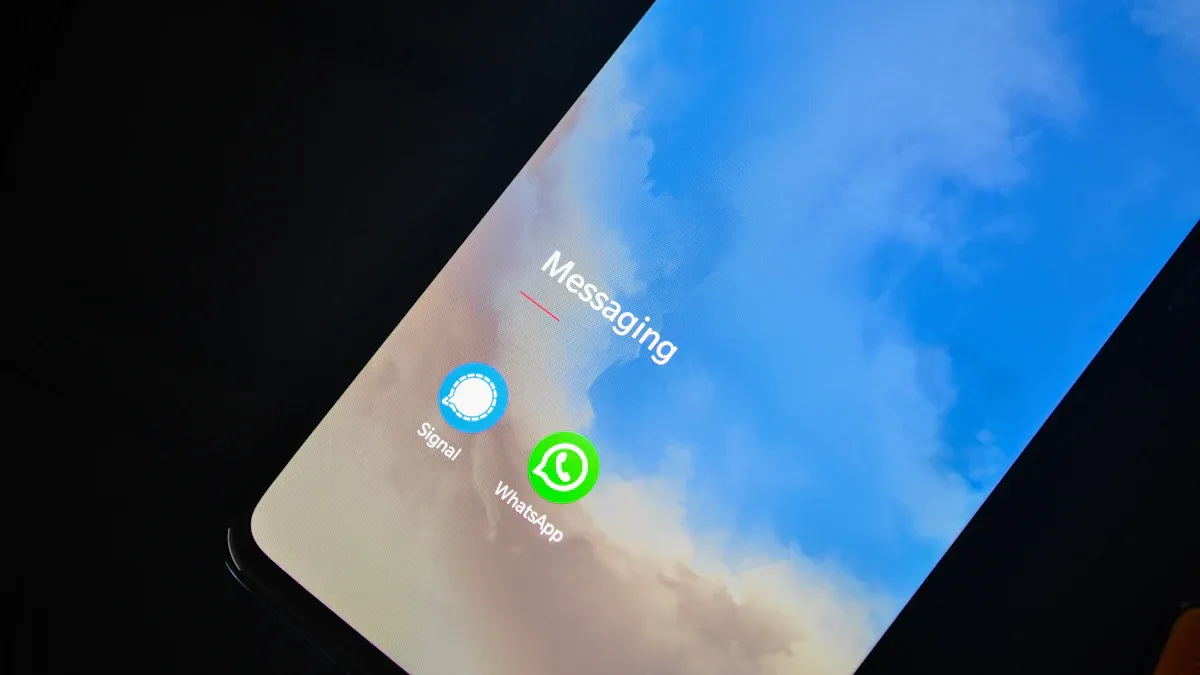
Understanding WhatsApp's Rate Limits
WhatsApp imposes rate limits to ensure fair usage and maintain platform stability. These limits directly impact how many messages you can send and how quickly they are delivered. For businesses starting with WhatsApp, the daily messaging limit is 250 messages. However, this can increase based on your performance, reaching up to 100,000 conversations or even unlimited conversations with high-quality messaging.
To maintain a high-quality reputation, you should focus on three key practices:
- Obtain user consent before sending messages.
- Deliver relevant and personalized templates to your audience.
- Avoid sending spam or irrelevant content.
Additionally, WhatsApp allows a per-second rate of 80 messages per business phone number, which can scale up to 1,000 messages per second for high-performing accounts. For individual users, you can send one message every six seconds, equating to about 10 messages per minute. By leveraging Sobot's WhatsApp Business API, you can monitor these limits and optimize your message delivery strategy for maximum efficiency.
Using Verified Business Accounts for Higher Trust
Verified business accounts play a crucial role in building trust and improving message delivery rates. These accounts display a green badge, signaling credibility to your customers. This small visual cue can make a big difference in how your audience perceives your brand.
| Metric | Description |
|---|---|
| Credibility at First Glance | Verified accounts are perceived as more trustworthy due to the green badge, enhancing customer confidence. |
| Higher Engagement Rates | Customers are more likely to open, read, and respond to messages from verified accounts, leading to better engagement. |
| Protection from Being Flagged | Verified accounts face a lower risk of being flagged as spam, ensuring better message delivery rates. |
For example, Michael Kors used Sobot's WhatsApp API to enhance its marketing efforts. By utilizing a verified account, the brand achieved a 20% increase in conversion rates. This demonstrates how verified accounts not only improve engagement but also ensure smoother communication with your audience.
Segmenting Your Audience for Targeted Messaging
Segmenting your audience allows you to send tailored templates that resonate with specific groups. This strategy improves engagement and ensures your messages deliver value. By analyzing metrics like delivery rate, open rate, and click-through rate, you can refine your approach and achieve better results.
| Benefit | Description |
|---|---|
| Personalization | Tailoring messages for better engagement. |
| Improved Conversion Rates | Higher success in achieving desired actions from targeted messaging. |
| Cost Efficiency | Optimizing messaging saves resources. |
| Better Customer Experience | Sending relevant promotions enhances user satisfaction. |
| Behavioral Insights | Understanding specific audience segments for better targeting. |
For instance, you can create templates for different customer segments, such as first-time buyers or loyal customers. A first-time buyer might receive a welcome message, while a loyal customer could get a personalized discount offer. Sobot's WhatsApp Business API simplifies this process by providing analytics tools to track audience behavior and optimize your messaging strategy.
Tip: Use behavioral insights to identify what works best for each segment. This approach not only improves engagement but also boosts your overall marketing ROI.
Scheduling Messages Strategically
Strategic scheduling of WhatsApp messaging templates can significantly improve your communication efficiency and customer engagement. Timing plays a crucial role in ensuring your messages are noticed and acted upon. For example, messages sent between 8 PM and midnight often achieve a 20% higher engagement rate compared to those sent during regular business hours. This timing aligns with when most people are relaxed and more likely to check their phones.
Scheduling also allows you to reach global audiences in their local time zones. This ensures your messages feel timely and relevant, enhancing their impact. For instance, if your business operates internationally, you can schedule promotional offers or reminders to align with your customers' peak activity hours, no matter where they are.
Here’s a quick overview of the benefits of scheduling:
| Benefit | Evidence |
|---|---|
| Time Efficiency | Businesses save up to 30% of time on message coordination through scheduling. |
| Enhanced Customer Engagement | Messages sent during optimal times see a 20% higher engagement rate. |
| Global Market Reach | Scheduled messaging ensures communication in customers' local time zones. |
| Consistent Brand Communication | Timely messages build trust and reliability. |
| Personalization | Tailored messages for special occasions boost satisfaction and loyalty. |
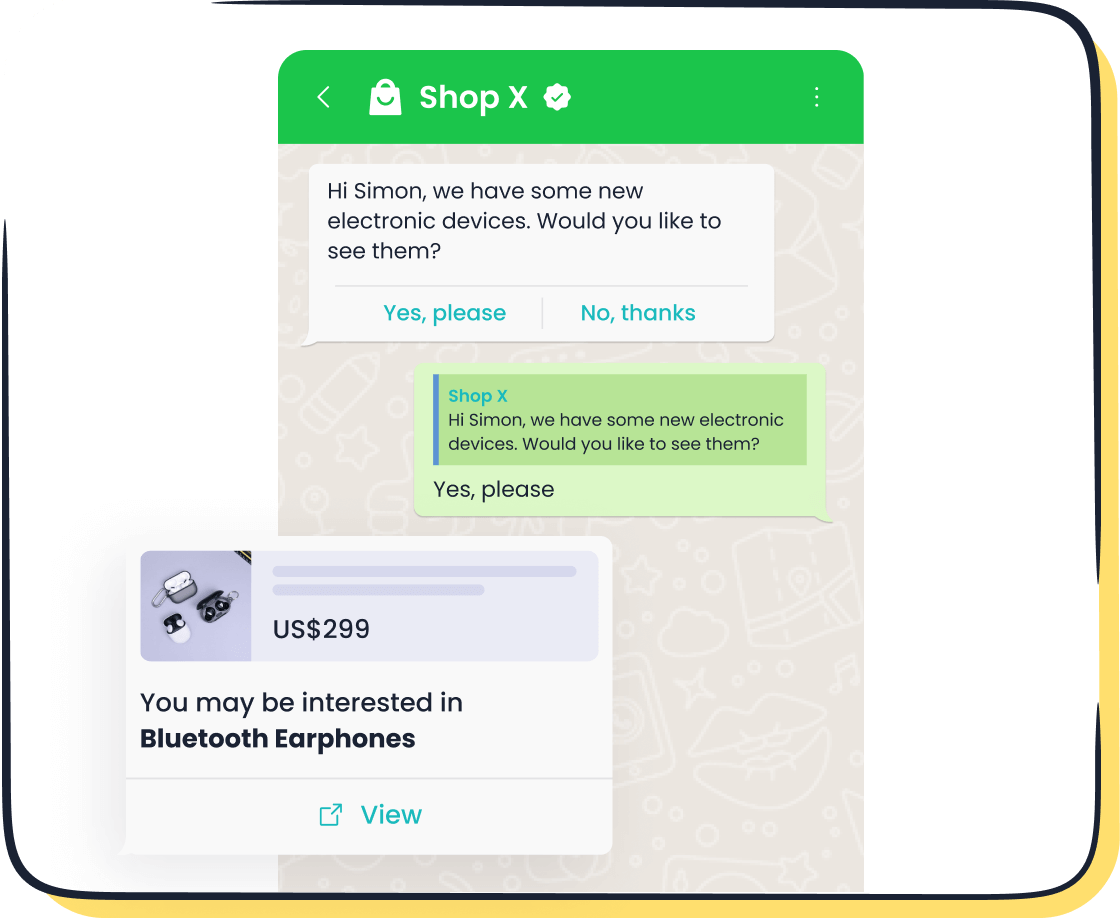
Using tools like Sobot's WhatsApp API, you can automate and schedule messages effortlessly. This API supports bulk messaging and allows you to set specific times for delivery, ensuring your communication aligns with your audience's preferences. For example, you can schedule birthday greetings or appointment reminders, adding a personal touch that strengthens customer relationships.
Tip: Always analyze your audience's behavior to identify the best times for sending messages. This approach ensures your WhatsApp messaging templates achieve maximum impact.
Automating Workflows for Faster Delivery
Automation is a game-changer when it comes to managing WhatsApp messaging templates. By automating workflows, you can reduce manual effort, minimize errors, and speed up message delivery. For instance, text message appointment reminders have been shown to reduce no-show rates by 38%, improving scheduling efficiency and customer satisfaction.
Sobot's WhatsApp API offers robust automation features that streamline your messaging processes. With this tool, you can set up workflows to handle repetitive tasks like sending order confirmations, payment reminders, or promotional updates. Automation ensures these messages are delivered promptly, even during high-demand periods.
Here are some key advantages of automating workflows:
- SMS messages have an average open rate of 98%, ensuring your communication gets noticed.
- The response rate for SMS is 45%, significantly higher than email's 6%, enabling faster interactions.
- Automated reminders and updates improve operational efficiency and customer experience.
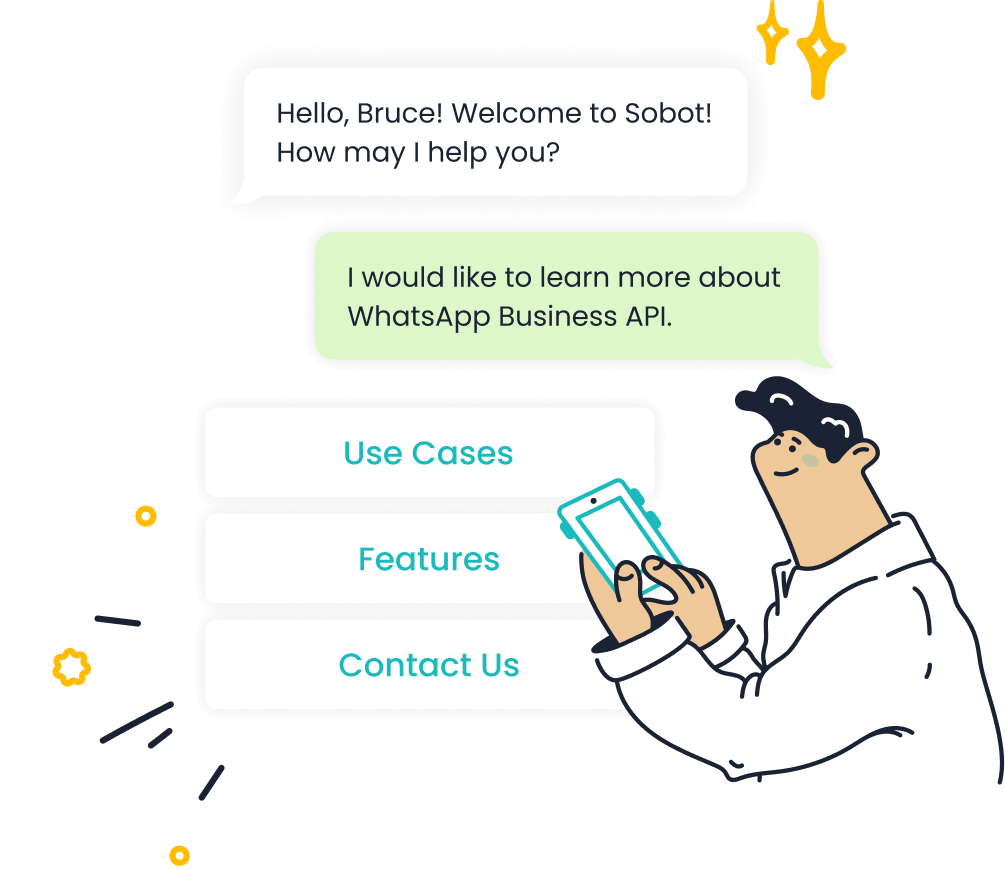
For example, imagine running a flash sale. With Sobot's WhatsApp API, you can automate the delivery of promotional messages to your audience at the right moment. This not only saves time but also ensures your campaign reaches its full potential.
Note: Automation doesn't just save time—it enhances accuracy and consistency in your messaging. This builds trust and strengthens your brand's reputation.
By leveraging automation and strategic scheduling, you can optimize your WhatsApp messaging templates for better engagement and faster delivery. These practices ensure your communication remains efficient, effective, and customer-focused.
The Role of Customer Support in Troubleshooting WhatsApp Messaging Templates
When to Contact WhatsApp Support
Knowing when to reach out to WhatsApp support can save you time and improve your messaging efficiency. Certain situations clearly indicate the need for their assistance:
- A sudden rise in customer complaints or inquiries about undelivered messages.
- Seasonal peaks, such as holiday sales, when your support volume increases significantly.
- Issues with your current communication channels that disrupt message delivery or customer satisfaction.
For example, if your templates consistently fail to deliver or you encounter recurring error codes, contacting WhatsApp support becomes essential. Their team can provide insights into delivery issues and help resolve template-related problems. Always monitor your messaging performance to identify patterns that may require external support.
How Sobot's Support Team Can Assist
Sobot’s support team offers specialized assistance to help you troubleshoot WhatsApp messaging templates effectively. As an official WhatsApp Business Solution Provider, Sobot provides tools and expertise tailored to your needs.
For instance, if your template gets rejected due to formatting errors, Sobot’s team can guide you in correcting the structure. They also help you optimize templates for compliance with WhatsApp’s policies. Additionally, Sobot’s WhatsApp Business API includes built-in analytics to track delivery rates and identify potential issues before they escalate.
By leveraging Sobot’s support, you can resolve problems faster and ensure your templates perform as intended. This proactive approach minimizes disruptions and enhances your communication strategy.
Providing Relevant Details for Faster Resolution
When contacting support, providing accurate and detailed information speeds up the resolution process. Include the following details in your request:
- The specific template name and its intended use.
- Any error codes or messages you’ve encountered.
- Screenshots or logs showing the issue.
For example, if a delivery error occurs, share the recipient’s number and the exact time of the failed attempt. This helps the support team pinpoint the problem quickly. Sobot’s WhatsApp Business API simplifies this process by offering detailed error logs and performance metrics. These tools ensure you have all the necessary data to resolve issues efficiently.
Tip: Always keep a record of your approved templates and their usage history. This makes it easier to identify and address problems when they arise.
Collaborating with Your Messaging Provider
Working closely with your messaging provider can significantly improve your WhatsApp messaging template performance. Providers like Sobot offer tools and expertise to help you troubleshoot issues and optimize your communication strategy. Establishing a strong partnership ensures you get the most out of your WhatsApp Business API.
Here are some ways to collaborate effectively:
- Leverage Expert Guidance: Messaging providers often have dedicated support teams. For example, Sobot’s team can assist you in resolving template rejections or delivery failures. Their expertise ensures your templates comply with WhatsApp’s policies.
- Utilize Advanced Tools: Providers like Sobot offer analytics and automation features. These tools help you monitor template performance and streamline workflows. For instance, Sobot’s WhatsApp API includes built-in compliance checks and error tracking.
- Request Regular Updates: Stay informed about new features or policy changes. Your provider can notify you about updates that impact your messaging strategy. This proactive approach keeps your communication compliant and effective.
- Provide Feedback: Share your experiences and challenges with your provider. This feedback helps them improve their services and tailor solutions to your needs.
For example, Michael Kors collaborated with Sobot to enhance its WhatsApp messaging strategy. By using Sobot’s API, the brand achieved a 20% increase in conversion rates. This success highlights the value of working with a reliable messaging provider.
Tip: Treat your messaging provider as a partner, not just a service. Their insights and tools can transform your communication strategy.
Building a Proactive Support Strategy
A proactive support strategy ensures you address WhatsApp messaging template issues before they escalate. This approach minimizes disruptions and enhances customer satisfaction.
Follow these steps to build an effective strategy:
- Monitor Performance Metrics: Use tools like Sobot’s WhatsApp API to track delivery rates, response times, and error codes. These insights help you identify potential issues early.
- Train Your Team: Educate your staff on WhatsApp’s policies and best practices. A well-trained team can resolve common issues without external support.
- Create a Knowledge Base: Document solutions to recurring problems. This resource saves time and ensures consistency in troubleshooting.
- Schedule Regular Reviews: Evaluate your templates and messaging strategy periodically. This practice helps you adapt to changes in customer behavior or WhatsApp’s guidelines.
- Engage with Customers: Collect feedback on your messages. Understanding customer preferences allows you to refine your templates for better engagement.
For instance, businesses using Sobot’s WhatsApp API can access detailed analytics to monitor template performance. This data-driven approach enables proactive adjustments, ensuring seamless communication.
Note: A proactive strategy not only resolves issues but also builds trust with your audience. Customers appreciate timely and effective communication.
Understanding and resolving issues with your WhatsApp messaging template ensures smoother communication and better customer satisfaction. You’ve learned about common problems like delivery failures, delays, and rejections, along with actionable troubleshooting steps. By following best practices, such as testing templates and ensuring compliance, you can avoid disruptions. Tools like Sobot's WhatsApp API simplify template management and improve efficiency. Proactive troubleshooting not only enhances operational performance but also builds trust with your audience. Start optimizing your templates today to achieve seamless messaging and stronger customer relationships.
FAQ
What is a WhatsApp messaging template?
A WhatsApp messaging template is a pre-approved message format used for sending notifications, alerts, or updates to customers. These templates ensure compliance with WhatsApp's policies and are ideal for transactional messages like order confirmations or appointment reminders.
How can Sobot's WhatsApp API help with template management?
Sobot's WhatsApp API simplifies template management by offering built-in compliance checks, error tracking, and analytics. It ensures your templates meet WhatsApp's guidelines, reducing rejections and delivery failures. For example, Michael Kors used this API to achieve a 20% increase in conversion rates.
Why do WhatsApp templates get rejected?
Templates often get rejected due to formatting errors, policy violations, or spammy content. For instance, mismatched curly braces ({{1}}) or non-sequential variables can lead to rejections. Tools like Sobot's WhatsApp API help validate templates before submission, ensuring compliance with WhatsApp's standards.
How do I test my WhatsApp messaging templates?
You can test templates using Sobot's WhatsApp API. This tool identifies issues like delays, formatting errors, or compliance risks. For example, it checks variable sequences ({{1}}, {{2}}) and ensures templates align with WhatsApp's policies, saving you time and effort.
What are the benefits of using verified business accounts?
Verified accounts display a green badge, boosting customer trust and engagement. Businesses using verified accounts see higher open rates and fewer spam reports. For example, Michael Kors leveraged a verified account through Sobot's WhatsApp API to enhance its marketing efforts and improve message delivery rates.
See Also
Steps To Seamlessly Integrate WhatsApp Into Your Website
Top Techniques For Integrating WhatsApp On Your Website
Setting Up Bulk Messaging Features In WhatsApp Business
